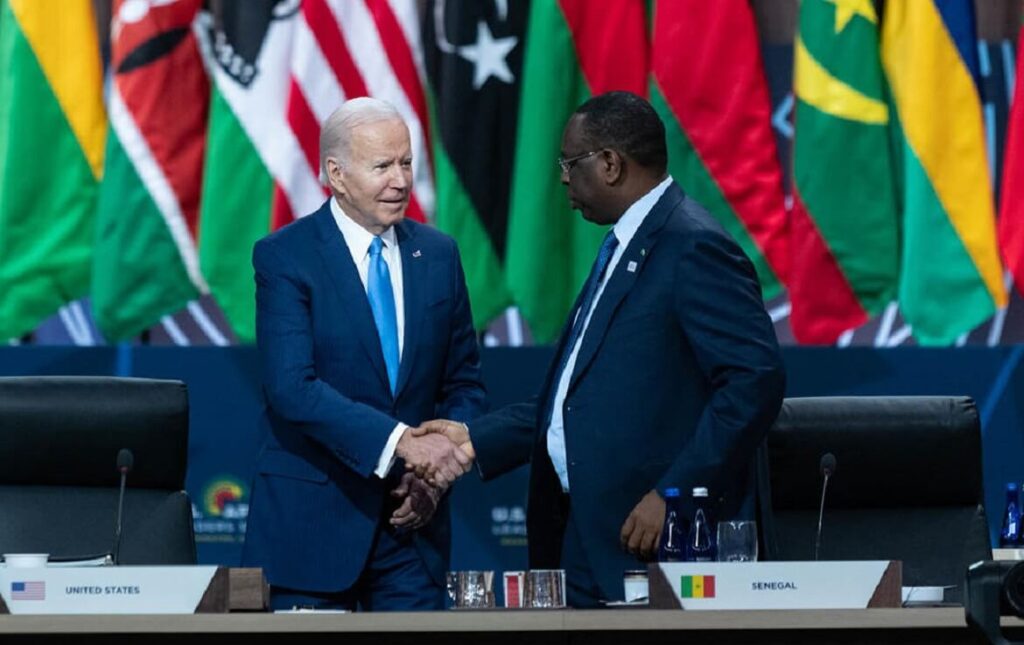World Geostrategic Insights interview with Nikolas K. Gvosdev on the importance of Africa in U.S. diplomacy, the possible impact of the election outcome on U.S. policy toward Africa, and whether the U.S. can still compete with China in Africa.

Nikolas K. Gvosdev is a professor of national security affairs at the U.S. Naval War College. He holds non-residential fellowships with Foreign Policy Research Institute (editor of “Orbis”) and Carnegie Council for Ethics in International Affairs (co-host of the “Doorstep” podcast). He is a member of Loisach Group and a contributing editor for The National Interest. He has taught at Baylor, Georgetown, George Washington, Harvard Extension and Brown universities. From 2016-20, he held the Captain Jerome E. Levy Chair in economic geography and national security. He is the author of six books and a frequent commentator on U.S. foreign policy and international affairs.
Q1 – Challenged by Russia, China and other powers, the United States seems to be losing ground in Africa. On the military front, the United States completed the withdrawal of its troops from Niger on September 17, marking the forced end of military cooperation initiated in 2012 to combat terrorism in the Sahel. Chad has also demanded and obtained the departure of 75 of the 100 American soldiers stationed on its territory, while Russia is gaining ground in the region. Better results have been recorded in economic cooperation. In 2023, the United States signed record trade agreements with Africa, worth a total of $14.2 billion. Washington also pledged last December to invest $55 billion over three years in Africa and President Biden, who promised to visit the continent during his five-year term, may visit Angola before the US presidential election, scheduled for November 5. In general, what importance does Africa have in American diplomacy?
A1 – The African continent largely remains a secondary priority for American diplomacy and defined primarily through the lens of great power competition with China. The effort to create a more positive agenda–the Partnership for Atlantic Cooperation, and the strengthening of north-south supply chains–has been uneven in development and implementation.
Given the crisis in Europe, the Middle East and East Asia, that have taken up the attention of senior leaders, there has not been someone consistently overseeing Africa policy who can speak with the authority of and on behalf of the president. This also has implications for economic policy. There have been some important moves in financing some projects, such as the Lobito corridor, which is designed to facilitate exports of critical minerals, but the U.S. has not been able to put together a public-private partnership, in conjunction with partners, that can match what China’s Belt and Road initiative can offer.
Q2 – Africa is absent from the U.S. presidential election campaign, no candidate has yet mentioned Africa. Kamala Harris visited Ghana in 2023, while during his presidential term between 2017 and 2021, Donald Trump did not visit Africa even once, and in 2018 used a language that could be considered offensive to African countries. Could the outcome of the election affect U.S. policy toward Africa? Or could the rise of China and Russia force whoever will be the winner to strengthen cooperation and diplomatic ties on the African continent?
A2 – While there is a truism that foreign policy is not a factor in U.S. presidential elections, the reality is that there is a foreign policy choice in this year’s contest. But the discussion among the candidates and the parties is about Russia and Ukraine, the rise of China, the pivot to Asia, the crises in the Middle East. Yet the debate is largely about reactions to current events, with less discussion about the changes that will be needed as geopolitical and geo-economic conditions change.
As I noted, the Partnership for Atlantic Cooperation was announced in 2023 as a way to rethink the trans-Atlantic relationship from solely an east-west orientation to a north-south one, to bring in Latin America and Africa. National Security Advisor Jake Sullivan explicitly noted that the South Atlantic had been neglected too long. He was also one of those within the administration who helped to develop the “foreign policy for a middle class” concept, where there would be a greater emphasis on building beneficial economic relations. But the room for creativity has been replaced by crisis management, and Congress has not been interested in passing new legislation that can facilitate new trade agreements. So U.S. Africa policy has been tinkering around the edges.
Q3 – China is Africa’s top trading partner. In the first half of 2024, Beijing traded $167.8 billion with the African continent. In addition, China has already got its hands on most of Africa’s known reserves of essential minerals. From Sept. 4-6, the 2024 edition of the Forum on China-Africa Cooperation (Focac) was held in Beijing, attended by some 50 leaders from the African continent. Among other things, the Chinese president promised $50 billion in “financial support” to Africa over the next three years. Several investment contracts were signed on the sidelines of the forum. However, it seems that this event did not arouse particular interest or concern from the U.S. administration. Is there still a competition between the United States and China in Africa? Or has China already won the race?
A3 – The Forum on China Africa Cooperation received almost no coverage in the United States because the bandwidth is so consumed by the Ukraine and Middle East crises. But there is now a sense that China’s own economic situation means that Beijing must be more discriminating in the funds it can disburse–and that the prospect of more half-finished or orphaned projects offers opportunities for Western investors to compete. I have also found some investors who are sanguine that even if China has constructed the infrastructure, African countries and companies will want to have access to multiple markets and investors. But this window of opportunity will not remain open indefinitely. Part of the reason China–and Russia–have made inroads is their willingness to provide financing and technology on more acceptable terms.
I still believe that there is a comprehensive Africa strategy that the United States could develop that would create an integrated resource and technological supply chain that would benefit all parties, especially the trilemma challenges African states face in terms of securing water, food and energy needs–for instance, a comprehensive nuclear partnership. But dysfunction in U.S. domestic politics may prevent the realization of such a strategy.
Nikolas K. Gvosdev – Professor at the U.S. Naval War College.
The views expressed in this interview are his own personal assessments.







